Where in the World is Miami Wednesday: New Zealand
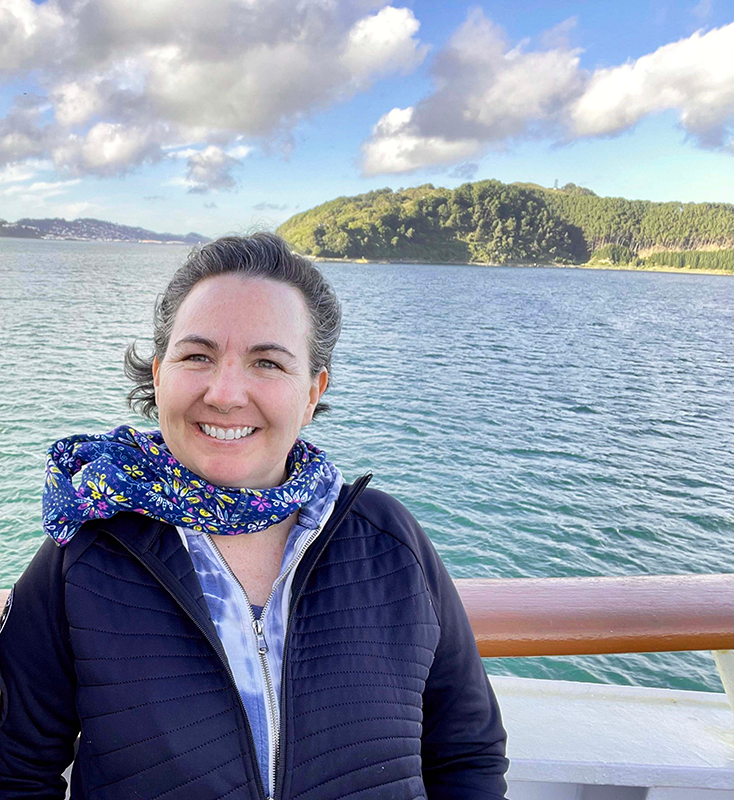

Name: Charmin Dahl
Year: Master's Candidate, Project Dragonfly, Biology, Class of 2022
Education Abroad Program: Project Dragonfly Advanced Inquiry Program
In this week's Where in the World is Miami Wednesday, we meet Charmin Dahl, a Project Dragonfly master's candidate. The Project Dragonfly AIP degree program allowed her the flexibility to continue her studies in New Zealand so she could complete an internship during the pandemic.
What did you study in your program?
After my wife's and my jobs were affected by COVID, we took the opportunity to move to New Zealand. Instead of taking the scheduled Project Dragonfly course for Spring Term, I created an internship with Wairarapa Pūkaha to Kawakawa Alliance (WaiP2K), a community-based conservation organization which aims to address a variety of regional environmental issues.
The AIP Summer Internship* allowed me to learn about New Zealand's unique conservation issues (such as invasive predator species) in addition to finding similar environmental concerns with my AIP cohort home, St. Louis, Missouri.
I'm currently in the last year of the program, planning to complete an Earth Expeditions program in 2022.
*Project Dragonfly’s Advanced Inquiry Program (AIP) offers an online master’s degree that combines web-based Miami graduate courses with face-to-face experiential learning and field study at some of the nation’s premier zoological, botanical, and wildlife conservation institutions.
How has the COVID-19 pandemic affected your experience?
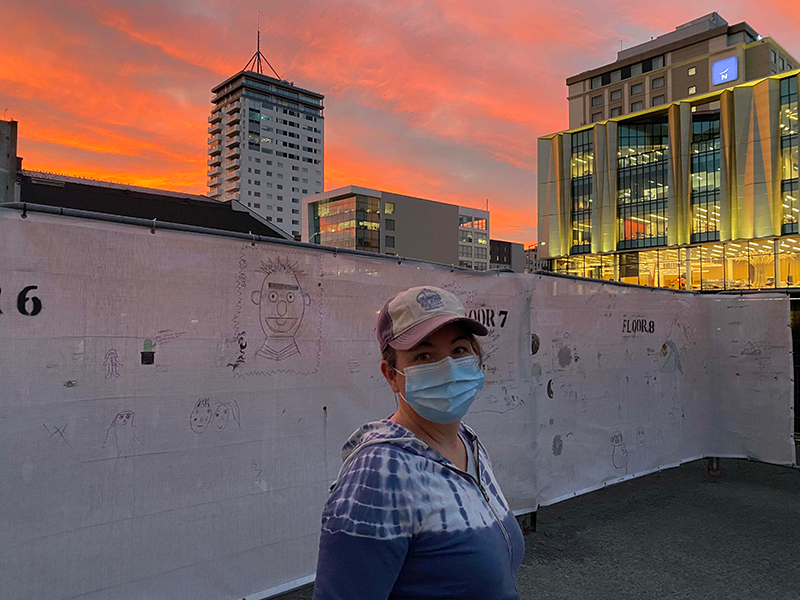 We moved from St. Louis, MO to New Zealand in March, and first had to stay in a quarantine hotel for two weeks. I was taking one class and student leading another. While stuck in quarantine, I had a lot of time to put into those classes! Both classes were online-only, another feature of the Project Dragonfly AIP.
We moved from St. Louis, MO to New Zealand in March, and first had to stay in a quarantine hotel for two weeks. I was taking one class and student leading another. While stuck in quarantine, I had a lot of time to put into those classes! Both classes were online-only, another feature of the Project Dragonfly AIP.
When COVID is present in the community, New Zealand implements eradication measures, known as Alert Levels. Since moving here, I’ve experienced several of these. In August, the country was put under Level 4 and Level 3 lockdowns, in which businesses close, schools move to online-only, and in-person events are cancelled.
WaiP2K staff work from primarily from home but host in-person meetings and events. My work with WaiP2K involved connecting people in our community who are working on native plant restoration. Before the August lockdowns, we were able to hold an event, but another was cancelled. Some of my work has included collecting online resources for WaiP2K to share via their website. I think the key for any organization is develop in person and online opportunities in tandem.
Why did you choose "WaiP2K" for the internship?
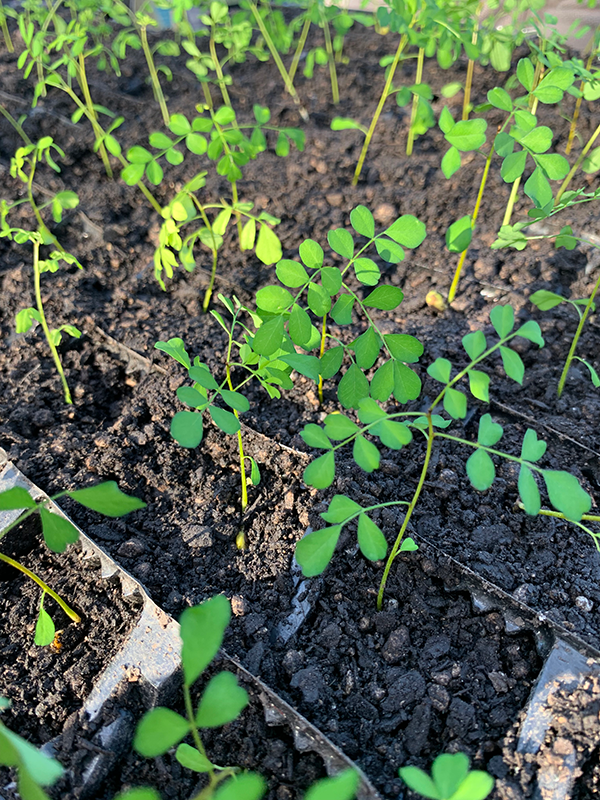
Planting Kōwhai trees to support native insects and animals
I picked Wairarapa Pūkaha to Kawakawa Alliance as they support community-based conservation projects, so working with them would expose me to all kinds of efforts in my new region.
The skills and methodologies I have learned so far in the AIP were directly applicable to my "real world" experiences here, interning/volunteering with a community-based conservation org. I feel like I was a stronger intern because of it.
Creating an internship here and working directly in my new community will encourage me to do that back in the U.S. and/or wherever I end up next. I have a better understanding of the ecological history of the region and met a lot of environmentally-minded folks who are doing important work. I continue to volunteer with WaiP2K under their education and outreach workstream/project.
My experience is different because I moved to New Zealand as a family choice, not for an international program. But I am grateful because I am able to complete my Project Dragonfly AIP master's courses while here and to have "in person" experiences that I would be missing by not being at the Missouri Botanical Garden for Spring Term. My Miami advisor, Karen Pucinski, and Missouri Botanical Garden cohort advisor, Susan Baron, were very supportive of my move and encouraged me to keep going in my classes.

Fleeing sheep: a common sight in Wairarapa!
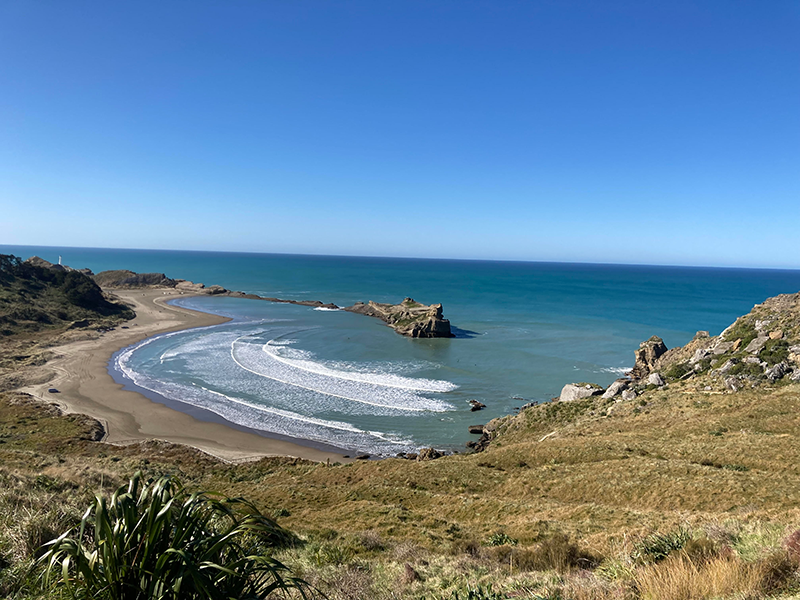
Wairarapa Castlepoint Scenic Reserve
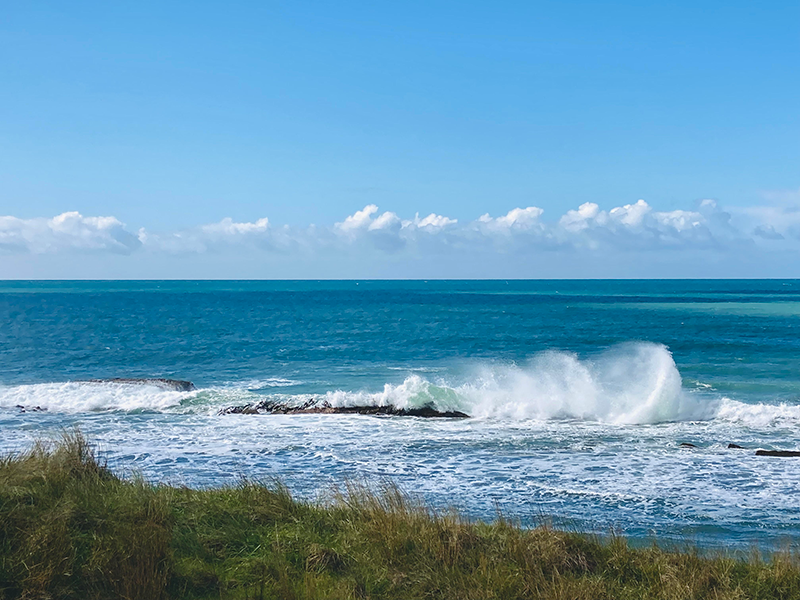
Mataikona Sea, Wairarapa
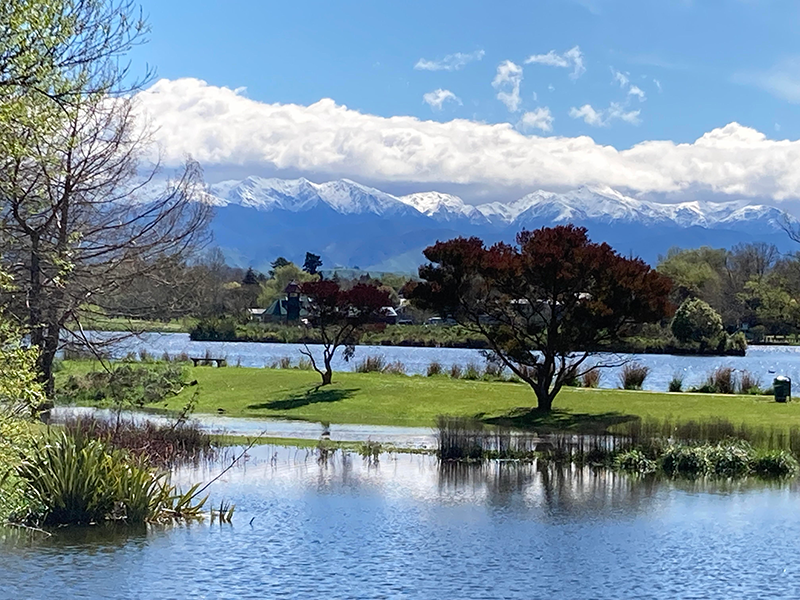
Henley Lake, Masterton, Wairarapa
What were the coolest places you visited during your internship?
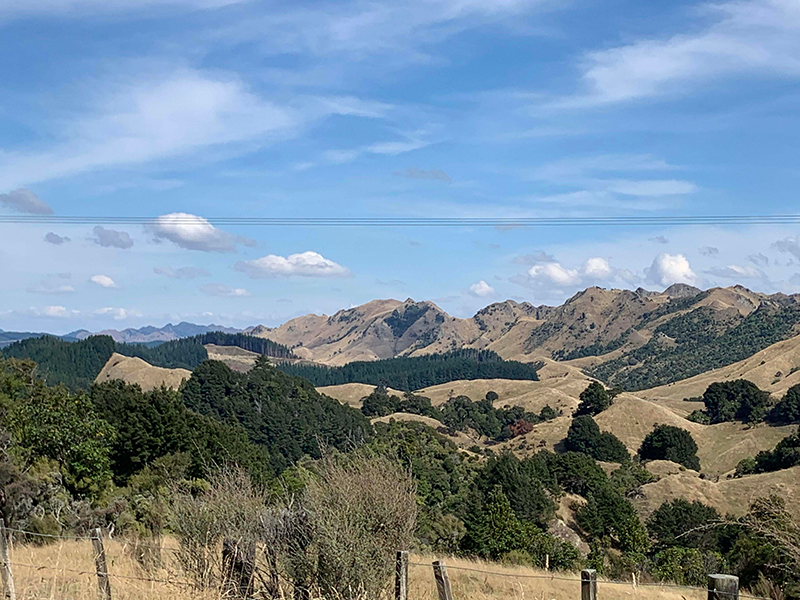 Since moving to New Zealand, we have done a fair amount of traveling between the North and South Islands. Most trips include wildlife and birdwatching, but of course we’ve been to Hobbiton! We also enjoy reconnecting to city life with trips to Wellington and Auckland.
Since moving to New Zealand, we have done a fair amount of traveling between the North and South Islands. Most trips include wildlife and birdwatching, but of course we’ve been to Hobbiton! We also enjoy reconnecting to city life with trips to Wellington and Auckland.
On a local scale, I have helped have helped a friend trap invasive predators in and on a small reserve in our region. Although it's small, the reserve has a wide diversity of ecosystems: farmland, riparian, wetlands, forest. It takes a few hours to check all the traps and it’s a joy to tramp through the tall wet grasses, native trees, and sheep pastures on cold, sunny mornings.
What was your favorite part of your internship?
My favorite part of the internship was meeting people who have been working on conservation for decades. One person is rewilding a large property, others have started a native tree nursery as part of their rural school, while still others focus on issues like water quality and endangered bats (bats are New Zealand's only native non-marine mammals)! The internship required literature review and an annotated bibliography, and I enjoyed reading about the history of New Zealand and current conservation initiatives.
How has living abroad changed you?
Moving overseas is different from vacationing overseas. We struggled with the accent and New Zealand colloquialisms. Our teenager had to adjust to a new and very different school than in St. Louis. Surprisingly, learning to drive on the left was one of the easier transitions.
In terms of conservation, I wasn’t expecting to care so much about invasive species removal, and yet it’s one of the most important conservation efforts here. To hear people talk about a bird that was rare, but is one that I see regularly now, is good news. In New Zealand, a large percentage of conservation work is done by volunteers. Their dedication is inspiring.
Where in the World is Miami Wednesday is a news article series that features Miami students studying abroad/away and international students. Catch us next week as we continue to travel around the world to feature the amazing opportunities that Miami students are taking and the experiences our alumni have had since graduating!
Would you or someone you know want to be featured in a future Where in the World is Miami Wednesday story?

